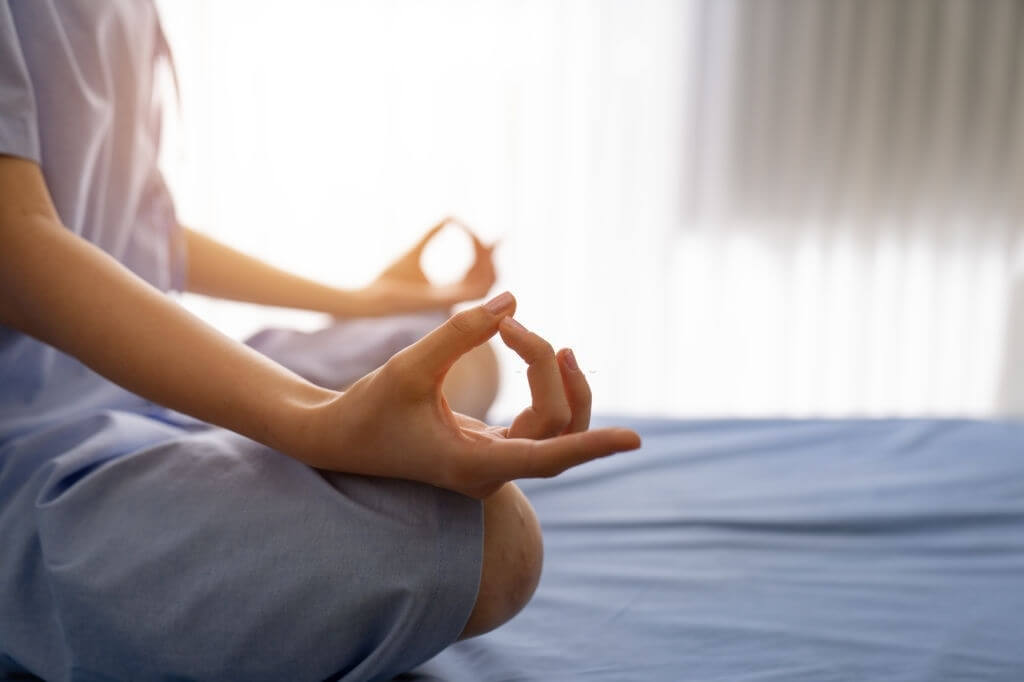Mindfulness has its origins in Buddhism, but most faiths contain some kind of prayer or meditation that may help you shift your focus away from your daily concerns and toward an appreciation of the present moment and a broader perspective on life.
Professor emeritus Jon Kabat-Zinn, founder and former director of the University of Massachusetts Medical Center’s Stress Reduction Clinic, was instrumental in bringing mindfulness meditation into mainstream medicine, demonstrating that it can improve physical and psychological symptoms as well as positive changes in health, attitudes, and behaviors.
How Mindfulness Meditation Can Help Deal, Covid Related Mental Stress
Research has also found that those who have suffered from an infection of Covid also have to face mental trauma due to poor physiological conditions. In this condition, the best way to heal the body and mind is meditation where one can concentrate on his breathing exercise that can lead to having a better and improved respiratory system.

The experts have checked with a few patients who are benefited from meditation after their stress level was found unexpectedly high due to infection of virus and other poor health conditions.
Many people’s emotional well-being has been disturbed by the COVID-19 pandemic’s uncertainty, loss, and isolation, as well as its related limitations. As a result of continuously changing public health standards and news reports, many individuals are anxious and afraid.
Mental health experts and scientists have called for the greater advancement of behavioral health science and therapy during the pandemic because of the urgency of the situation. There is a chance to refocus public health efforts on managing the mental health implications of the pandemic as vaccination rates climb.
Mindfulness can be referred to as a mental state that involves focusing on the present moment and accepting one’s current mental and physical condition without judgment. Meditation for mindfulness is a mental activity that aids in achieving that state of mind.
Although there is plenty of evidence to support the use of mindfulness meditation for improved mental health, it was unknown if these effects would hold true in the setting of COVID-19, which involves lengthy confinement and other stresses.
Research proved that practicing mindfulness for 10 days daily provided a buffer against the detrimental effects of COVID-19 news intake.
Mindfulness can be practiced in a variety of ways, but the objective of any mindfulness approach is to reach a state of attentive, focused calm by paying attention to thoughts and sensations without judgment.
The mind is able to refocus on the current moment as a result of this. Meditation is a term that encompasses all mindfulness methods.
Some Techniques include
- Body sensation Technique
- Sensory Technique
- Emotion Technique
- Urge surfing Technique
Awareness meditation, a systematic way of concentrating attention, can help build mindfulness. It is possible to learn to meditate on your own by reading books or listening to tapes.
There is also a possible benefit from the assistance of an instructor or a group who can answer questions and keep the motivation going. It is important to look for someone who practices meditation in a way that aligns with your ideas and objectives.
The human race is a social species. Practicing mindfulness can help in increased well-being, as well as social support can help you stay motivated. For this reason, you should seek local organizations that offer online or in-person choices for practicing meditation with other like-minded folks.
Find what works best for you, whether you practice mindfulness by yourself or in a group; whether you practice in the morning or the evening, whether you practice it regularly or perhaps every few days.